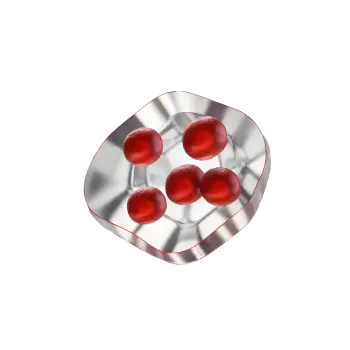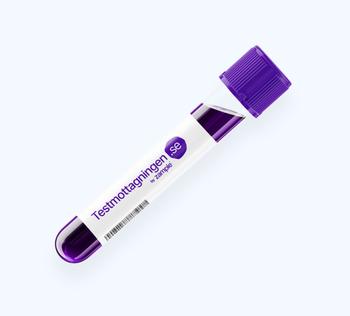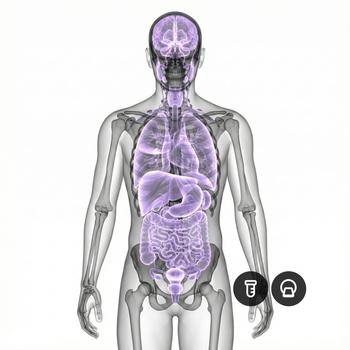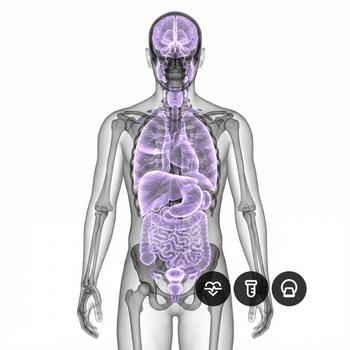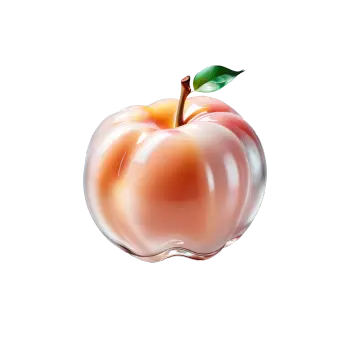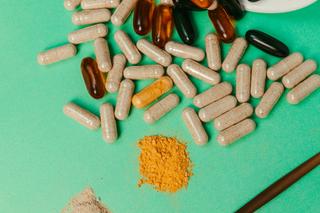What is folate?
Folate is a B vitamin that is important for cell growth and function as well as for the production of DNA and RNA. In addition, folate is important for blood formation and to prevent the development of diseases such as neural tube defects in the fetus during pregnancy.
Why analyze folate?
Folate is often analyzed to examine nutritional status and to identify possible folate deficiency conditions. A lack of folate can lead to a variety of health problems such as anemia and brain damage to the fetus during pregnancy. Folate analysis is also useful to monitor the treatment of certain diseases, such as anemia and inflammation, and to assess the effect of folate supplementation.
What can a low value of folate mean?
A low value means a lack of folate and can be seen in a deficient diet, such as malnutrition (especially in the elderly and in case of alcohol abuse) and in problems with absorption (for example in celiac disease and Crohn's disease).
Other causes include increased use or loss (such as during pregnancy, hemolytic anemia, myeloproliferative conditions, and chronic inflammatory conditions) as well as disturbances in folate metabolism due to certain medications (such as antiepileptics and methotrexate).
What can an elevated folate value be due to?
High folate values can be seen in substitution therapy with vitamins and can also occur as a "secondary phenomenon" to a lack of vitamin B12 and in hemolysis in connection with sampling.
Folate and ferritin – synergistic relationship for blood formation
Folate and ferritin have a synergistic relationship when it comes to blood formation. Folate is an important component in the production of red blood cells, while ferritin is a protein that stores iron in the body and is necessary for blood formation. A lack of intake of folate can lead to a decrease in the number of red blood cells, while a lack of ferritin can lead to iron deficiency anemia. Both folate and ferritin deficiency can lead to health problems, so it is important to get adequate amounts of both folate and iron from the diet.
Folate and vitamin B12 – important together
Folate and vitamin B12 have a close relationship when it comes to blood formation and the production of red blood cells. Folate and vitamin B12 are both important for DNA synthesis and are necessary for cell growth and function. Folate is necessary to convert another substance into the active form of vitamin B12, while vitamin B12 is necessary to convert folate into its active form. Insufficient intake of both folate and vitamin B12 can lead to anemia and other health problems. Therefore, it is important to get sufficient amounts of both folate and vitamin B12 from the diet.
Folate deficiency (folic acid)
With a lack of folate (folic acid), anemia can occur, as the body cannot produce the red blood cells correctly. It is especially important to get the right amount of folate/folic acid in the blood before and during the first weeks of pregnancy, as levels that are too low increase the risk of spina bifida in the fetus. The risk of miscarriage is also increased with low levels of folate.
By eating a lot of folate-rich food, there is no risk of ingesting too much folate. However, a high intake of folic acid through, for example, food supplements can cause difficulties with symptoms arising from a lack of vitamin B12.
This is how much folate we need
For women of childbearing age, the daily intake of folate is recommended at 300 micrograms, for pregnant and lactating women 500 micrograms applies. Young people over 14 and adults are recommended 300 micrograms. See the Swedish Food Agency for recommendations regarding children. Many people today get too little folate through food, during pregnancy it is especially important and therefore folic acid supplements are recommended both before and during pregnancy.
Folate in the diet
Dietary sources of folate include green leafy vegetables, nuts, fruits and grains. Foods that contain a lot of folate are beans, lentils, chickpeas, various types of cabbage, dark green leafy vegetables, fruit and berries. Other foods that contain a relatively high amount of folate are, for example, skimmed milk and yogurt and whole grain products.
Symptoms of folate/folic acid deficiency
- tongue fever
- sleeping problems
- depression
- impaired cognition
- worsening of mental illness
- paresthesias (numbness, tingling) in hands or feet






















